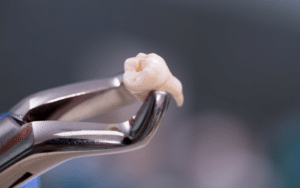You may have halitosis if you frequently have terrible breath or if someone has commented on how you smell. Depending on what you are eating or if you have “morning breath,” which is prevalent in people who breathe through their mouths, bad breath may come and go. Nonetheless, skipping out on regular dental hygiene care is the most frequent offender.
The unregulated millions of bacteria in your mouth, particularly on your tongue, that emit bacterial acids (plaque) are the main cause of halitosis. Volatile sulphur compounds (VSCs) are the waste sulphur by-products that oral bacteria emit. Additional causes include gum disease, dental decay, respiratory tract infections, chronic sinusitis, and “fruity” breath, which occurs in people with uncontrolled diabetes.
Proper Diagnosis and Treatment
Our dentist will thoroughly examine your oral cavity when you come to our dental office for assistance with foul breath. It involves examining your tongue, salivary glands, teeth, and gums. We’ll go over your medical history, including any prescriptions you may have taken that could cause dry mouth. Because saliva flow is reduced in cases of dry mouth, or xerostomia, poor breath results. Saliva is an essential component of oral health.
Other dietary practices that can lead to chronic halitosis include eating garlic and onions, drinking coffee or alcohol, intermittent fasting, and following low-carb or ketogenic diets, all of which can induce bad breath. Bad lifestyle choices, such as chewing tobacco or smoking, also make your breath smell bad.
Improve Your Breath and Boost Your Confidence
- Begin by improving your everyday oral hygiene routine. Don’t forget to clean your tongue after brushing and flossing for two minutes, at least twice a day! To clean the surface of your tongue, use a tongue scraper or your toothbrush. Additionally beneficial are antibacterial mouthwash and toothpaste; our dentist would be pleased to suggest the best products for you.
- Keep your mouth moist to avoid dryness. To keep saliva levels in check, drink lots of water. You can also eat sugar-free gum to increase saliva production.
- Rinse your mouth after eating to get rid of leftover food particles and oral detritus.
- Maintain a healthy diet and limit your snacking to veggies like apples, celery, and carrots, which help to clean your teeth and increase saliva production.
Address Health Issues or Medical Conditions
You’ll need to take care of any health issues you may have in addition to your usual routine. Your dentist can diagnose you with periodontal disease, gum inflammation, tooth decay, or poorly fitting dentures if you have oral infections.
You can treat other medical disorders, like respiratory tract infections in the sinuses, throat, or lungs, by making an appointment with your primary care physician. Additional ailments may comprise of diseases of the kidneys or liver, diabetes, acid reflux, etc.
Taking proper care of your teeth and taking care of any unresolved health issues can help you achieve better oral health overall! Resolving bad breath issues is a great way to start fresh in the New Year with a renewed commitment to taking better care of your body and smile. This can increase your self-assurance when interacting with friends, family, and coworkers in social situations!
If you require dental care during the holidays, visit the nearest dental office in Keller, TX. Dr. Peter Truong Vo, your dentist in Keller, TX, is available to help with any dental emergencies. Don’t forget to schedule an appointment.





